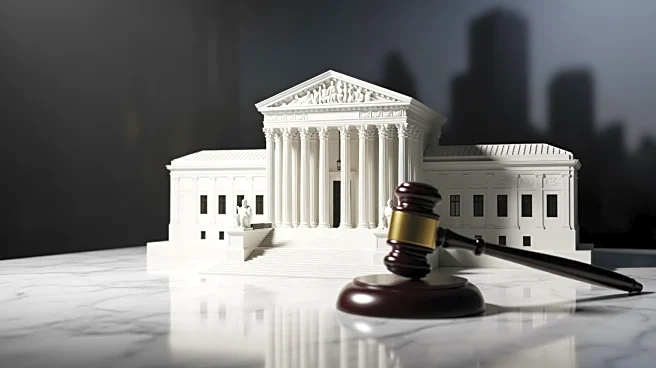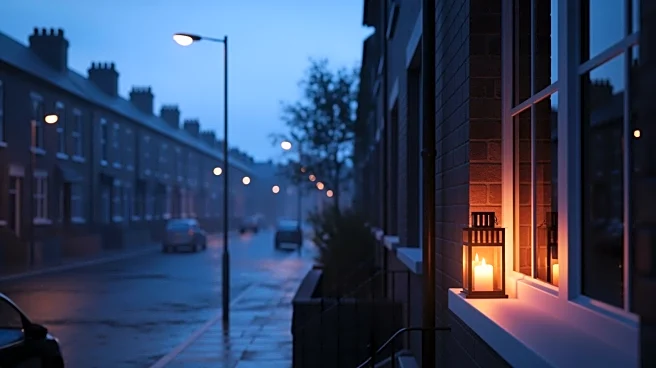What's Happening?
President Donald Trump has filed an emergency appeal to the Supreme Court seeking permission to deploy the National Guard in Chicago. This move comes after two lower courts, including the U.S. District Court for the Northern District of Illinois and the 7th
Circuit Court of Appeals, ruled against his attempt to send military forces to address protests against ICE activities in the city. The Trump administration argues that these protests amount to insurrection, posing a threat to federal personnel and property. However, the courts have rejected this characterization, with Judge April Perry stating there is no credible evidence of rebellion in Illinois. The administration's appeal claims that federal agents face violent resistance that endangers their safety and hinders law enforcement efforts.
Why It's Important?
The appeal to the Supreme Court highlights ongoing tensions between federal authority and local governance, particularly in the context of civil protests. If granted, the deployment of the National Guard could set a precedent for federal intervention in local matters, potentially impacting the balance of power between state and federal governments. Critics argue that equating protests with insurrection undermines citizens' rights to free speech and assembly. The decision could influence future federal responses to civil unrest and shape public policy regarding protest management and civil liberties.
What's Next?
The Supreme Court's decision on this appeal will be pivotal. If the court sides with President Trump, it may embolden further federal interventions in local protests, potentially leading to increased tensions between state and federal authorities. Conversely, a ruling against the president could reinforce judicial checks on executive power, affirming the courts' role in reviewing presidential decisions. Stakeholders, including political leaders, civil rights groups, and local governments, are likely to react strongly to the outcome, influencing public discourse and policy on federal intervention in civil matters.
Beyond the Headlines
The legal arguments presented by President Trump invoke historical precedents, such as the 1827 Martin v. Mott ruling, which granted the president authority to mobilize troops. Critics argue that this case is not applicable to current circumstances, as it involved foreign threats rather than domestic protests. The broader implications of this appeal touch on constitutional interpretations of presidential powers and the limits of executive authority in domestic affairs. The outcome could have lasting effects on how such powers are exercised and challenged in the future.















